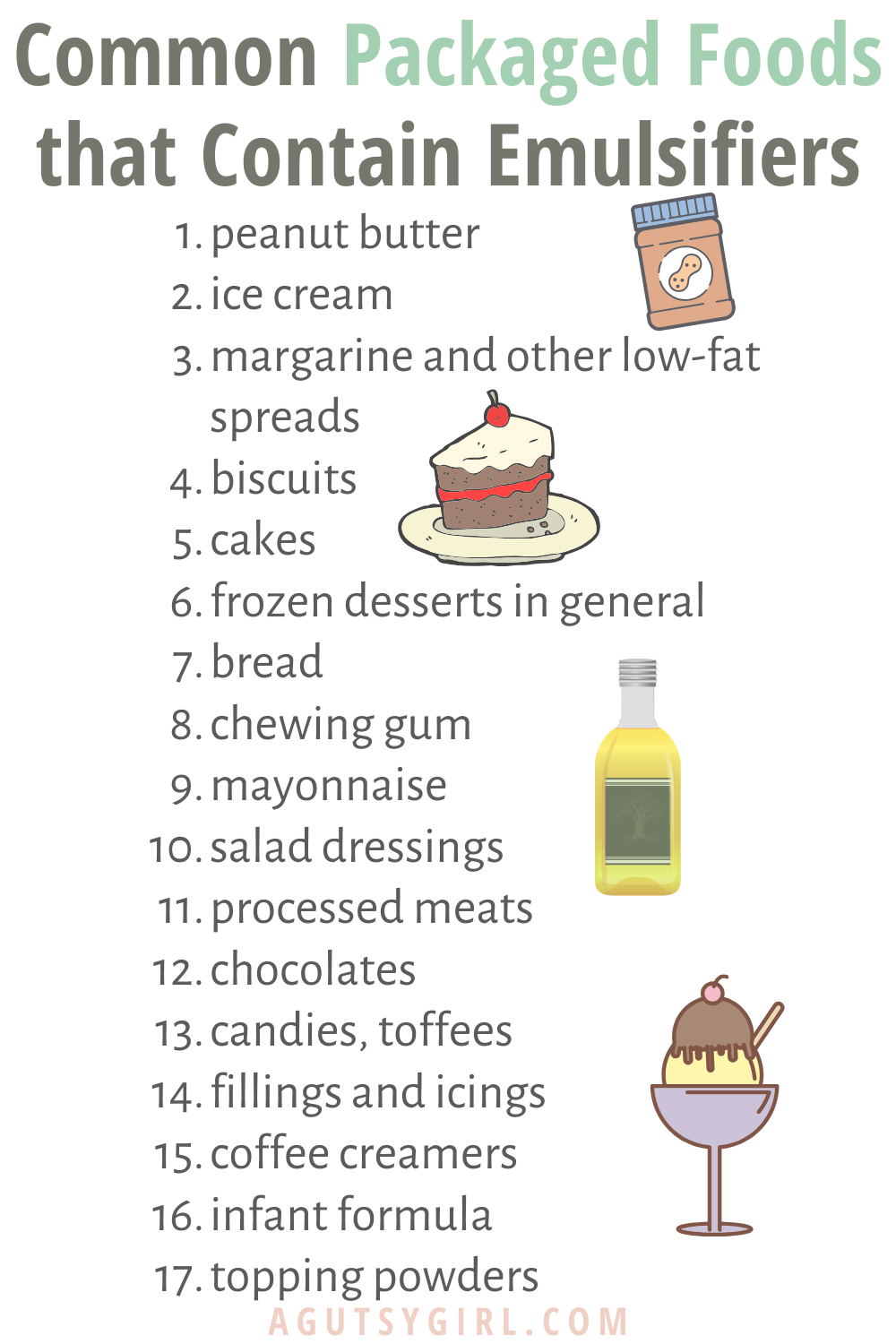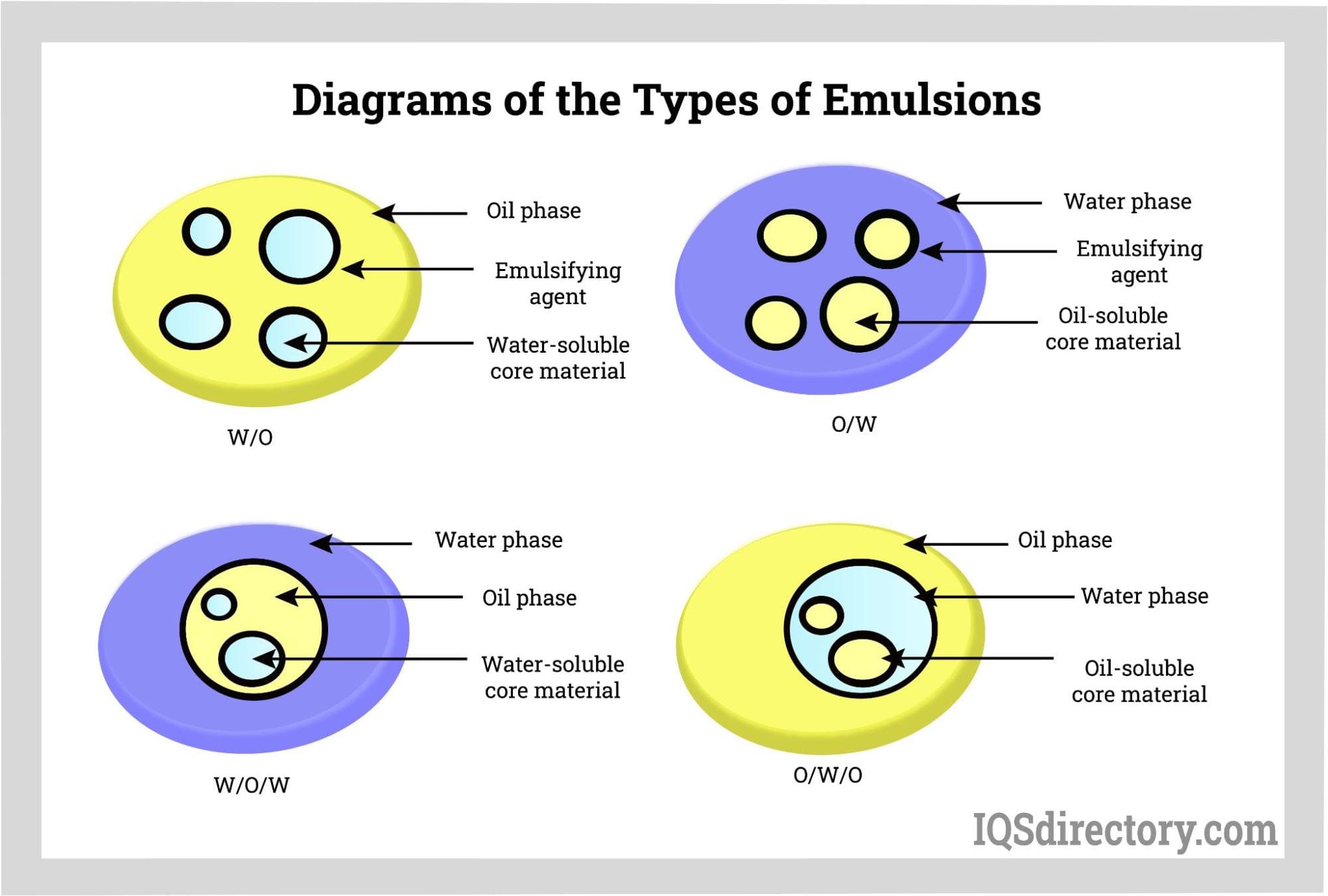Understanding Emulsifiers in Pharmaceutical Applications
Understanding Emulsifiers in Pharmaceutical Applications
Blog Article
Exploring Various Kinds of Emulsifiers and Their Applications Throughout Industries
Emulsifiers play an important duty in numerous sectors, making sure items preserve their wanted appearance and stability. You may be surprised to find the differences between all-natural and artificial emulsifiers, each bringing unique benefits to the table. Whether it remains in your preferred salad dressing or a skin care item, these compounds are almost everywhere. Recognizing their applications can expose much regarding product top quality and performance, but that's simply the start of the story.
What Are Emulsifiers?
Emulsifiers are vital substances that help blend 2 immiscible liquids, like oil and water, developing a steady mix. These substances reduced the surface stress in between the fluids, permitting them to mix a lot more efficiently. You typically encounter emulsifiers in daily products, from salad dressings to lotions. When you whip up a creamy vinaigrette, as an example, these representatives keep the oil and vinegar from separating, making certain a smooth appearance.
In food production, emulsifiers enhance the mouthfeel and stability of items, making them more delightful. Overall, recognizing emulsifiers can help you value the scientific research behind the products you use daily, showcasing their relevance in numerous sectors.
Kinds of Emulsifiers: All-natural vs. Artificial
When thinking about emulsifiers, it is essential to acknowledge the distinction between natural and synthetic options. All-natural emulsifiers, originated from plant or pet sources, frequently appeal to those seeking healthier, extra environmentally friendly items. Instances consist of lecithin from soybeans and beeswax, which can give stability in food and aesthetic formulations.

Selecting between all-natural and synthetic emulsifiers comes down to your specific demands. If you prioritize clean labels and sustainability, all-natural alternatives might be your best choice. If performance and consistency are your objectives, you could lean towards synthetic emulsifiers. Eventually, understanding your demands will assist you choose the right emulsifier for your task.

Systems of Activity: Just How Emulsifiers Work
Comprehending the differences in between all-natural and synthetic emulsifiers establishes the phase for checking out just how these substances function. Emulsifiers work by lowering the surface area tension in between two immiscible fluids, like oil and water.
As you stir, the emulsifiers produce an obstacle around oil beads, avoiding them from integrating. This leads to a steady solution, preserving uniformity in items. The efficiency of an emulsifier usually relies on its focus, molecular structure, and the qualities of the liquids involved. By understanding these systems, you can better appreciate the essential duty emulsifiers play in various applications, from cosmetics to drugs, guaranteeing the wanted structure and security in products you utilize each day.
Emulsifiers in the Food Sector
In the food industry, around 80% of refined foods have emulsifiers, highlighting their crucial function in boosting appearance and security. These components aid mix oil and water, developing smooth, consistent products like salad dressings, sauces, and ice lotion. When you grab a container of mayonnaise or a container of chocolate syrup, you're experiencing the magic of emulsifiers at work.
Common emulsifiers like lecithin, mono- and diglycerides, and polysorbates aren't almost taste-- they enhance rack life and avoid ingredient splitting up. This means your favored foods stay fresher and keep their attractive look.
You'll additionally discover emulsifiers in baked products, where they add to moisture retention and crumb structure. By recognizing the influence of emulsifiers, you can appreciate exactly how they raise your food experiences, making each bite not just scrumptious but also consistent. So, following time you enjoy a velvety dip or a rich treat, keep in mind the undetected heroes at the workplace!
Emulsifiers in Cosmetics and Personal Treatment Products
While you might assume of emulsifiers mainly in food, they play a vital duty in cosmetics and personal care items as well. These compounds help mix water and oil, developing smooth, steady formulas in lotions, lotions, and serums. You'll find emulsifiers in creams, where they assure even circulation of moisturizing active ingredients, making them a lot more reliable on your skin.
When you apply make-up, emulsifiers assist accomplish the ideal appearance, enabling items to move on effortlessly. They also enhance the rack life of products by protecting against separation, ensuring you get the most out of your favored items.
Typical emulsifiers in this market include glyceryl stearate and cetyl alcohol, which not just support formulations however additionally supply skin advantages. So, following time you get to for a moisturizer or structure, remember that emulsifiers are quietly functioning behind the scenes to keep your items efficient and enjoyable to utilize.
Emulsifiers in Drugs
Emulsifiers play a vital duty in pharmaceuticals by making certain that active ingredients are evenly distributed within fluid solutions. When you're establishing dental, topical, or injectable drugs, you require emulsifiers reference to maintain mixtures of oil and water, boosting the bioavailability of the active compounds. This security is vital for preserving the performance and security of the product throughout its shelf life.
You may experience several kinds of emulsifiers, like natural ones originated from plant resources or synthetic alternatives particularly made for targeted applications. Each type can influence the structure, absorption rate, and general performance of the medication.
In enhancement, emulsifiers can enhance the solubility of poorly water-soluble drugs, making them much more restorative. Therefore, you can create formulas that are easier to provide and much more reliable for clients - Emulsifiers. Comprehending the role of emulsifiers will aid you make notified options in pharmaceutical development
Emulsifiers in Industrial Applications and Paints
When you take into consideration industrial applications and paints, emulsifiers end up being vital for achieving the preferred uniformity and efficiency of products. They assist support mixtures of water and oils, preventing splitting up and making sure harmony. In paint solutions, emulsifiers enhance dispersion, permitting pigments to blend flawlessly and providing a smooth surface.
You'll discover that different types of emulsifiers deal with certain needs, such as boosting adhesion, lowering surface stress, or enhancing resilience. In finishings, they help manage viscosity, making application much easier and a lot more reliable.
Beyond paints, emulsifiers play a considerable function in adhesives and sealers, adding to much better bonding and adaptability. Emulsifiers. By picking the best emulsifier, you can considerably improve product top quality and performance, making your offerings extra affordable on the market. To sum up, emulsifiers are crucial for enhancing industrial applications, ensuring that items meet the demands of consumers and industry standards alike
Frequently Asked Questions
Are Emulsifiers Safe for Consumption in Food Products?
Yes, emulsifiers in i thought about this food are typically risk-free for intake. They're tested for safety and authorized by regulatory agencies. You can enjoy foods containing emulsifiers without stressing, as they boost appearance and stability in your meals.
Can Emulsifiers Reason Allergic Responses in Some People?
Yes, emulsifiers can create allergies in some individuals. If you're delicate to specific ingredients, it's crucial to check out tags very carefully and get in touch with a medical care specialist if you experience any kind of unfavorable responses. Stay informed and safe!
Exactly How Do Emulsifiers Impact the Life Span of Products?
Emulsifiers enhance the shelf life of products by supporting blends, stopping splitting up. They aid keep appearance and flavor, ensuring Recommended Site your things remain appealing and fresh for longer, eventually decreasing waste and enhancing your general experience.
Are There Vegan-Friendly Emulsifiers Available?
Yes, there are lots of vegan-friendly emulsifiers available. You'll find options like soy lecithin, sunflower lecithin, and guar gum tissue, which function well in various dishes while keeping your dishes plant-based and scrumptious.

What Are the Ecological Effects of Artificial Emulsifiers?
Synthetic emulsifiers can damage ecosystems via air pollution and bioaccumulation. They may disrupt aquatic life and add to soil destruction. You should take into consideration all-natural choices to decrease these ecological impacts while maintaining product performance.
Report this page